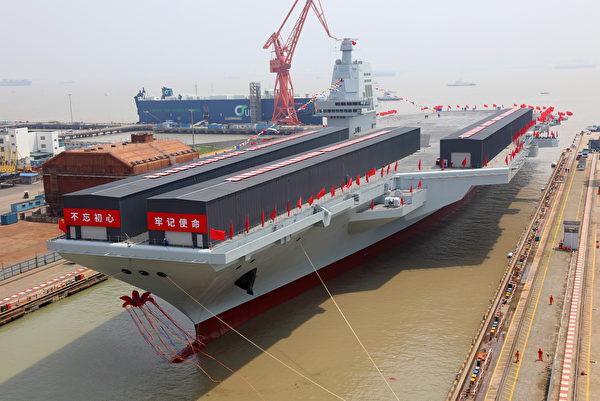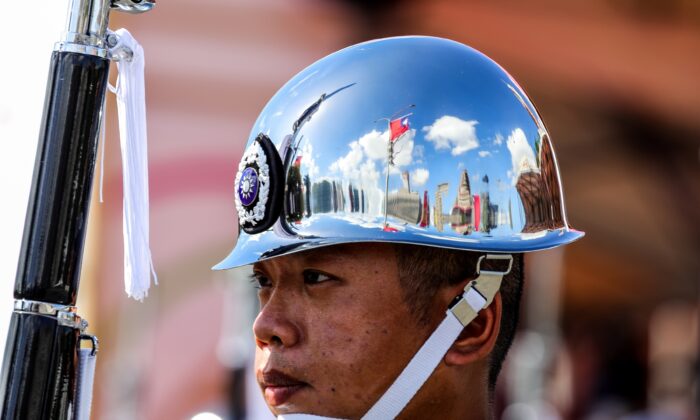Commentary
Xi Jinping, leader of the Chinese Communist Party (CCP), may believe that his best opportunity to conquer Taiwan and secure his position lies in defying the odds and making a move before the U.S. presidential election in November.
Even some of his adversaries within the CCP may reluctantly agree with this assessment.
Observers of China can see the mounting factors pushing for immediate action. Taiwan’s military strength is growing, and its allies are strengthening their resolve to resist Beijing’s aggression. The longer Xi delays, the harder it will be to achieve his goals, especially as the Chinese economy falters. Additionally, the re-election of Donald Trump as U.S. president could pose a significant challenge to Xi’s plans.
The recent inauguration of Taiwan’s new president, William Lai, served as a deadline for Xi to respond to Taiwan’s defiance. Since the election, the CCP has escalated military provocations against Taiwan.
However, launching a military invasion of Taiwan remains a high-risk option for Xi. His persistence in considering it as the only way to maintain power reflects his consolidation of decision-making power within the CCP.
There are strong reasons for Beijing to reconsider its goal of absorbing Taiwan, given the capabilities of Taiwan, Japan, the United States, India, and other concerned nations to counter any Chinese military action.
Understanding the divisions within the CCP and the extent of control each faction has over military decisions is crucial. Xi’s opponents must weigh the survival of the party against his leadership.
While many obstacles stand in the way of Xi’s plans, his recent purges of opponents indicate his determination to maintain power. Foreign intelligence analysts must focus on Xi’s risk assessment regarding an attack on Taiwan.
As Xi continues to destabilize his opponents, 2024 is shaping up to be a year of strategic messaging between the CCP, Xi, and their adversaries, particularly the United States.
Xi’s messaging aims to divert attention from domestic crises and prevent his opponents from gaining ground. This includes escalating the perception of a foreign threat, particularly from the United States.
While Xi’s tactics may involve misinformation, the need to maintain offensive behavior to thwart opponents remains paramount.
Overall, Xi’s strategic messaging in 2024 is crucial for understanding the dynamics within the CCP and the potential for conflict in the region.
Meanwhile, the People’s Liberation Army Navy (PLAN) has begun its first sea trials of its third (and most advanced) carrier, the 80,000-ton displacement Fujian, which is a show of strength but not necessarily a meaningful one if Xi intended to launch military operations against Taiwan in 2024.

A CCP-initiated conflict against Taiwan in 2024 would conceivably cause an immediate broader response, including Japan and the United States (not to mention the players emerging on China’s flanks, such as Vietnam and India), and this would likely see Fujian targeted to ensure that it would never reach commissioning into the PLAN fleet.
That is not to express too much confidence in the United States or Allied naval and air capabilities but rather to note that the response to a Chinese invasion of Taiwan from a range of opposing nations would be overwhelming. Again, this does not address the unknown but considerable capabilities of the People’s Liberation Army (PLA) overall.
Clearly, the PLA’s capabilities and loyalties remain an open question, both to CCP officials and foreign analysts.
Even so, what options remain for Xi?
Indeed, even among Xi’s detractors within the CCP elders, are there some who feel that unless the Chinese regime moves now against Taiwan—and, by default, against the United States—it may never have another opportunity? That, absent risky action, the future of the nation is lost?
This view begins to parallel the process that led the Japanese government to undertake the (known) high-risk attack on Pearl Harbor on Dec. 7, 1941. And this is the very mistake that many PLA and CCP officials vowed not to repeat. For that reason, among others, Xi’s actions for the past decade have been aimed at weakening the economic, political, and military cohesiveness of the United States.
So would a PLA direct military attack on Taiwan inexorably lead to the need for Xi to commit to a strategic series of strikes against targets in Japan, the Central Pacific (particularly Guam), and even the U.S. mainland?
It is an open question, but parallels must be seen to other ideologically committed leaders, such as Adolf Hitler, who enjoyed absolute command.
It is standard operating practice to consider that a U.S. presidential election year means that the United States either ignores the rest of the world or acts internationally in ways to protect and project the interests of an incumbent president seeking reelection. As a result, Beijing must consider not only the possible adverse strategic ramifications of the election of former President Trump but also the probability that the incumbent Joe Biden administration would need—for its own political survival, as well as for U.S. strategic interests—to react strongly against a CCP threat to Taiwan.
Thus, despite how angry Xi’s CCP opponents may be that he has brought communist China to this collapse and return to doctrinaire Maoism, they may feel that they are now fated to support a “toss of the dice” to undertake a military action to save the regime and the CCP itself from being destroyed. The questions remain, however, as to whether the PLA itself would essentially risk mass suicide to engage in such a war or whether the PLA has the training and technology to perform well.
Views expressed in this article are opinions of the author and do not necessarily reflect the views of The Epoch Times.
Can you please rephrase that statement?
Source link






